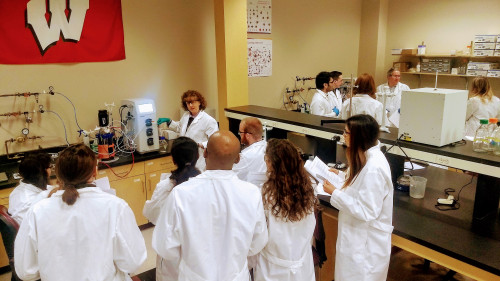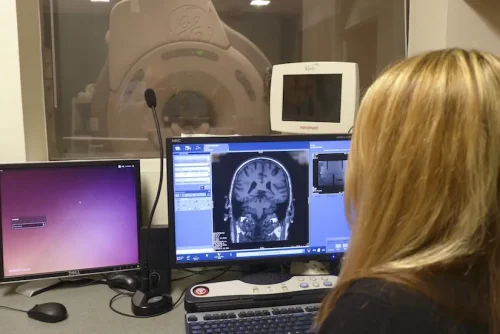The University of Wisconsin-Madison has joined a statewide consortium of 15 public and private partners, mobilizing its experience and expertise as a collaborative powerhouse in bioscience and technology to help bolster Wisconsin's leadership in personalized medicine and biohealth technology.
Announced by the Wisconsin Economic Development Corporation on Aug. 16, the consortium will bring together educational institutions, biohealth companies, precision manufacturers, and investors to develop and facilitate shared initiatives and to pursue designation by the federal Economic Development Administration as a Regional Tech Hub. The designation would give Wisconsin access to $50-75 million in federal funds under the CHIPS and Science Act of 2022.
"The University of Wisconsin-Madison is delighted to collaborate in this critical project and to be a partner in this ambitious vision to improve both the health and the economic vibrancy of our state," says UW-Madison Chancellor Jennifer L. Mnookin. "It's the epitome of The Wisconsin Idea: working in partnership to drive forward innovation, world class research and broad-ranging opportunity for the public good."
The creation of the consortium - and pursuit of the Regional Tech Hub designation - aims to foster new technologies and care pathways that will improve care for patients while growing Wisconsin's economy. The group will leverage Wisconsin's momentum in the growing biohealth technology space and facilitate collaboration that spurs economic growth in the state, creates good-paying jobs and advances health care and personalized medicine to save lives and reduce health care costs.
As a member of the consortium, UW-Madison provides elements vital to a successful Regional Tech Hub. These contributions include:
Preparing a workforce to drive the industry forward

Students in UW-Madison's MS in Biotechnology study science, business, policy and law to prepare for careers leading in the burgeoning biotech economy. A majority of graduates remain in Wisconsin.
UW-Madison's educational portfolio, including programs in medical physics, biotechnology and medical engineering, creates a dynamic, collaborative workforce base in the state.
The university has the nation's largest graduate training program in medical physics, including an entrepreneurial fellow program designed to fast-track startup incubation and formation.
The Master of Science in Biotechnology program - launched in 2002 to offer a wide-ranging curriculum in science, business, regulatory policy and law aimed to prepare students to succeed in the state's biotechnology industry - has seen a majority of its more than 400 graduates remain in Wisconsin after graduation.
Finally, UW-Madison's clinical, research and training programs in medical imaging and radiology are among the best in the world.
A foundation of industry collaboration

Sara John, an MRI research technologist at the UW School of Medicine and Public Health in 2017, reviews research images from a GE MR scanner. Over the past 30 years, UW-Madison and GE Healthcare have built a vital collaborative research and technology relationship, generating many health innovations, including more than 100 patents.
The university has a long history of industry collaboration in the field of biotechnology, partnering with industry on vaccine advancements, rare disease treatments, imaging technology and more.
Among the university's exemplary partnerships is its collaboration with GE Healthcare - the U.S.'s only major medical diagnostic imaging and product manufacturer. Over the past 30 years, UW-Madison and GE Healthcare have built a vital collaborative research and technology relationship, generating many health innovations, including more than 100 patents.
Pathways to growth for Wisconsin's biosciences industry






